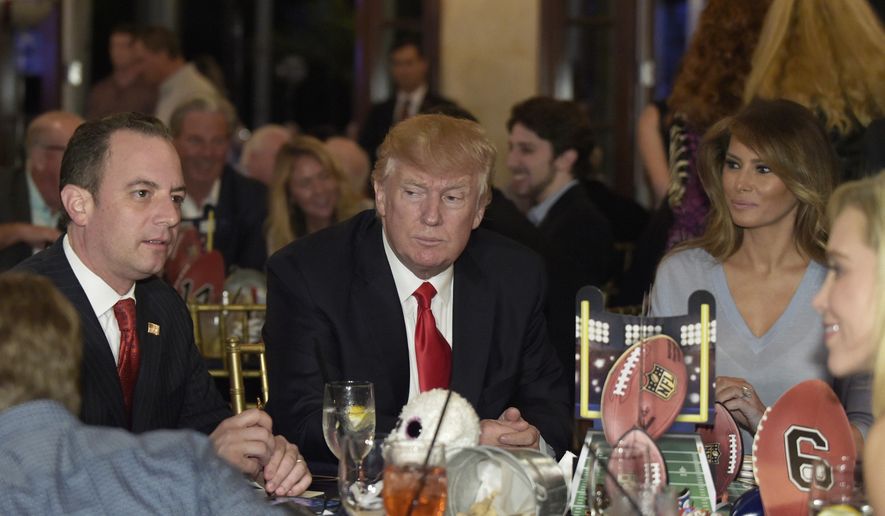OPINION:
More than a third of Americans think the mainstream media has been unfair to President Donald Trump, and after the swath of fake news released last week, there’s no doubt as to why.
According to a nationwide Gallup poll released Sunday, 36 percent of Americans think media outlets have been too hard on Mr. Trump, while only 28 percent say they haven’t been tough enough. Significantly more people think the press went easier on former President Barack Obama than Mr. Trump, the poll found.
The first two weeks of Mr. Trump’s presidency have been rocky, with the press erroneously reporting many stories that confirm their own negative impression of his presidency, or by simply not taking the time to gather all the facts.
Last week, The Associated Press reported a phone call between Mr. Trump and Mexican President Enrique Pena Nieto, which strongly implied that Mr. Trump suggested sending U.S. troops down to Mexico to help them deal with their “bad hombres.”
After the story went to press, the Mexican government said it wasn’t true, Mr. Trump never said he’d be sending troops down to the southern border. The White House later reaffirmed that Mr. Trump didn’t plan to invade Mexico — but that didn’t stop reporters and political operatives from retweeting, and igniting a social media fire.
“I’m sorry, did our president just threaten to invade Mexico today??” Jon Favreau tweeted, linking to a tweet by a Yahoo News reporter that highlighted a portion of the AP story, with the words “Wow.”
Of course, it wall all false. Nevertheless, it was retweeted more than 8,000 times.
Then there was a Washington Post column, which depicted an internal transaction between the White House and Department of Homeland Security, where Steve Bannon looked to override a decision by DHS’s Gen. John Kelly over Mr. Trump’s immigration order. The problem with the column was it only took into account an unnamed source from DHS and never called the White House for comment.
White House Press Secretary Sean Spicer said Mr. Bannon never traveled to Mr. Kelly’s office as the article depicted and demanded a correction. Instead, The Post decided to update with an editor’s note, saying the White House denied the fundamental claims in the column.
“You were wrong,” Mr. Spicer wrote on Twitter, directed to Post columnist Josh Rogin, who initially reported the exchange. “You failed to reach out to anyone. There was not Sat meeting, he wasn’t on call, no sr staff meeting.”
The press also was quick to say Mr. Trump was easing sanctions on Russia — because they want to play up Mr. Trump’s ties with Russia — regardless of whether it was true or not.
NBC reporter Peter Alexander tweeted: “BREAKING: US Treasury Dept easing Obama admin sanctions to allow companies to do transactions with Russia’s FSB, successor org to KGB.”
The tweet immediately went viral, but then was followed up with a clarification, that wasn’t nearly as sensational.
“Source familiar [with] sanctions says it’s a technical fix, planned under Obama, to avoid unintended consequences of cybersanctions,” Mr. Alexander tweeted. It got fewer than 250 retweets, whereas the initial, untrue version got more than 6,500.
Perhaps the most outrageous media accusation of Mr. Trump last week came when they thought he changed the name of Black History Month to National African American History Month.
“Man who spread racist conspiracy theory about Americas first black president changes name of #BlackHistoryMonth,” a senior political writer at Elite Daily wrote on Twitter.
He then quickly realized his mistake.
“Actually, looks like Obama called it National African American History month every single year,” he wrote.
OK. Well then. Is there really any wonder why the American people think the press is being hard on Mr. Trump?




Please read our comment policy before commenting.